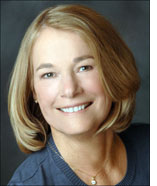|
 SAN DIEGO— Dara Horn’s new novel, All Other Nights, provides an intriguing glimpse into the lives of Jews during the American Civil War. SAN DIEGO— Dara Horn’s new novel, All Other Nights, provides an intriguing glimpse into the lives of Jews during the American Civil War.
The protagonist, Jacob Rappaport, yearns to escape his parents’ expectations that he folllow his father into a business that bores the young man, and when he is pressured into agreeing to marry the woefully unsuitable daughter of his father’s business partner, he feels his only way out is to join the Union army.
Horn’s opening gambit sets up a novel that explores with a generally deft hand the sociohistorical facts about Jewish experience and identity on both sides of the Mason-Dixon line during this era, as well as the ethical complexities that ensue when familial obligation is disregarded, and personal identity is set adrift.
Aware, as American Jews would have been foolish not to be, that to be Jewish is to be perennially suspected of just about anything negative, Jacob tries to prove his loyalty to the Union cause by agreeing to use his family ties to insinuate himself into the Pesach celebration of a New Orleans aunt’s family, for the purpose of murdering her husband, who is
Go to the top of right column |
|
involved in a conspiracy against the North.
Why was that night unlike all other nights? Because once Jacob overcomes his hesitation at the end of the seder and watches his uncle die on the spot from the fast-acting poison in his wine, he has crossed an ethical line that will draw him deeper and deeper into a web of lies and a trail of devastation not just of others but of himself.
Late in the book, as he undestands that he “could have said no,” he comes to see that our actions ripple outward in ways we cannot predict, and that in the end we may find that the only thing our free will leads to is a desperate desire to be redeemed for our poor use of it.
The novel is well worth reading by those interested in Jewish-American history, although there will be few surprises for those already aware of Ulysses Grant’s anti-semitism and the key role of Judah Benjamin in Jefferson Davis’ cabinet. In the end, however, the story is not so much about what is visible and documentable about Jews and Jewish life in the era, but how Jewish identity permeates the way this one particular protagonist thinks and acts as an individual.
Horn’s writing reads easily for the most part, thUdding on the page only occasionally when she steps in unnecessarily to be sure we get the point she’s making, or to supply facts that can’t be easily woven into the narrative. This is only a minor shortcoming in what is overall an engaging and worthwhile read. The numerous ethical questions at the core of the story would lead to good book club discussions.
|

